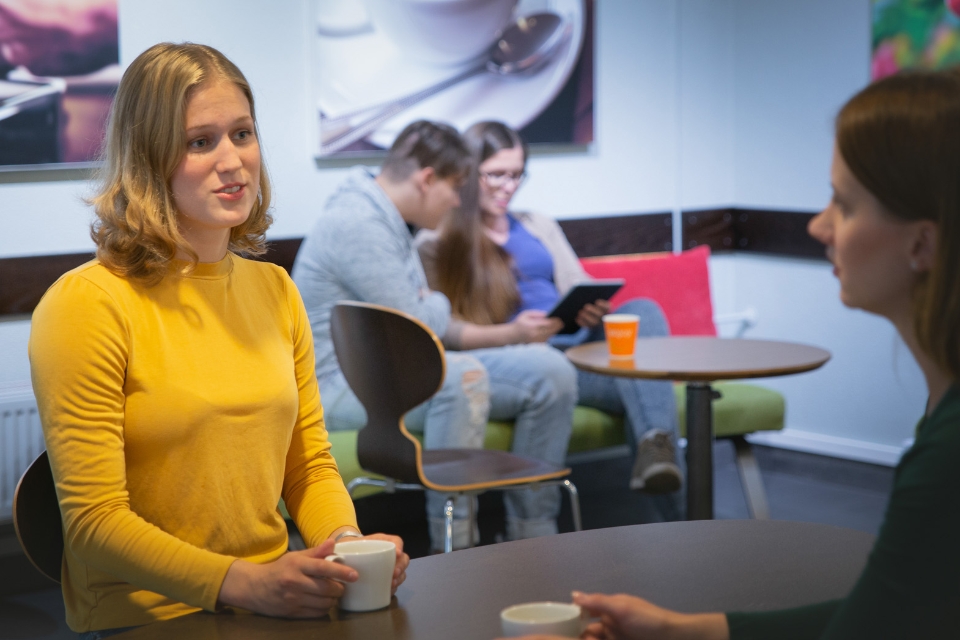Master’s thesis: Even though majority of parents use antibiotics correctly, false beliefs sit tight
Rajya Kasichhawa and Usha Shrestha's Master's thesis was a research on Nepalese parents’ knowledge and self-reported use of antimicrobial medicine in the children of 0-12 years.

Antimicrobial resistance (AMR) is one of the issues of concern in health care services. As much as antibiotic is taken for granted, it is unimaginable that we could enter into the world of “post antibiotic era”. AMR is a complex phenomenon where microbes pass on the genes to survive in the hostile environment as an effort to counteract the toxic effect of antimicrobial drugs. Although, such evolution is a part of natural phenomena, human being is swifting the process knowingly or unknowingly. Abundant antimicrobial use has forced microbes to fasten their genetic mutation resulting in AMR.
Many researchers have studied knowledge, attitude and practice of antibiotic use among public in order to find out potential factor associated with AMR. Rajya Kasichhawa and Usha Shrestha, students in Laurea Master’s degree programme in Global Health Management, wrote their Master’s thesis in Nepalese parents’ knowledge and self-reported use of antimicrobial medicine in the children of 0-12 years.
Although antibiotic is mostly prescribed by physician, this is not always the case. In some cases, physicians are directly or indirectly forced to prescribe antimicrobial even if antibiotic is unnecessary. While on the other cases, in many countries of world including Nepal, public have right to buy antibiotic without any prescription. The consequences of AMR might affect every individual in the world regardless of nationality, creed, colour or any other ethnical background.
Majority of parents use antibiotics correctly
The recent study results are concluded according to survey done in November to December of 2018. The study reported that majority of parents use the physician’s prescription to get antibiotics and would follow health care personnel’s advice. Although majority admit that antibiotic effectiveness is reduced if full course is not completed, almost one out of three parents would stop antibiotic when their children feels better. It is noteworthy that incompletion of full course of antimicrobial has detrimental effect in development of AMR.
Very few parents would share antibiotics to another sick children and keep antibiotic stock at home. Also, most of the parents would consult doctor for sick children. It was delighted to conclude that majority of parent’s self-reported use of antibiotic is in the right track.
Almost half of them acknowledged that antibiotics treat both bacterial and viral infection. The false knowledge about treating viral infection with antibiotic could enforce parents to use antibiotic which would have an effect on AMR. In addition, majority believed that antibiotic reduce fever. Three out of five were aware that antibiotic overuse may cause AMR. Parents between 31 to 40 had better practices on purchasing antibiotics on doctor’s prescription. And, the family without health care worker shared less antibiotics than the family with health care worker. Parents with university education showed higher level of knowledge about antibiotics than parents with lower education. Also, family with 3-4 children had higher knowledge than the family with 1-2 children.
Education is key
The result underlines the importance of educating parents about antibiotics. Parents have false belief that antibiotic treats viral infection. They also believed that fever is the main reason for antibiotic prescription. Although, majority of parents use antibiotic according to doctor’s prescription, their knowledge about antibiotic is not adequate which is also addressed by previous studies.
It is noteworthy that the results of the survey may not be generalized due to small number of participants. In addition, the study was conducted in the urban area of the city that could potentially affect the result. Therefore, further study with the representative sample may allow to generalize the result. Such result would provide information for the planner of the AMR campaigns to base the information accordingly.
Read Kasichhawa's and Shrestha's thesis on Theseus
Further information:
Rajya L. Kasichhawa & Usha Shrestha
Master’s degree programme in Global Health Management
firstname.lastname@student.laurea.fi